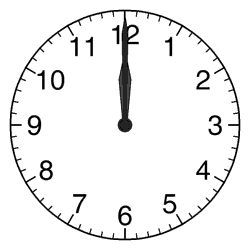Many years ago, my mom gave me a key chain with a tab that says “A day that begins and ends in prayer is less likely to become unraveled.”
It’s a sentiment which both as a practicing Christian and a liturgy geek, I enthusiastically support…in theory. I love the idea of a quiet time to start the day, with a set of prayers and responses that focus my thought on service and charity, forgiveness and dedication. I love the idea of a quiet time to end the day, relinquishing my cares and settling into actual rest.
The problem is, that with so many unavoidable commitments scheduled each day, I usually just rush into my day: I get up, dress, make coffee, maybe do dishes I didn’t do the night before, and then head to the computer, read email, and plunge into my workday, with the excuse that there’s no time for devotions….I’ll do that later when there is time.
And of course, there almost never is. Besides, there’s something really bizarre about doing morning prayer at three in the afternoon.
At night, I generally fall into bed exhausted, check my phone for messages, and turn the light out.
Brush my teeth? — in the morning.
Compline? — Maybe tomorrow.
I must have complained about this to my mother, because it’s her voice nagging me as I make excuses: “You don’t find time. You make time.”
She meant, of course, that we deliberately set aside time for things we think are important. We add appointments to the calendar and set aside the block of time to be in class, or at church, or meet someone. Making time is the result of deliberate and disciplined action to both set aside time and remember what we need to do when the time comes. Appointments that involve our responsibilities to others are generally easy to meet: those others will hold us accountable for missing a meeting we agreed on. Making time for things that are important only to ourselves is harder, and it requires that we first of all determine what is really important to us.
We all chose how to spend our time. We make commitments to take a course…but we don’t always mentally make the commitment to set aside the time to do a good job. We may identify finishing all the assignments with what is important, but miss actually learning the material, taking shortcuts to complete the assignment, skipping the review work that would really let us own the concepts and processes we are supposed to learn. The course becomes a set of tasks, rather than an exploration of new ideas, new ways of learning the truth about ourselves, the universe, and God. A checklist of assignments completed is useful, but if we are only doing them to get the check mark, and not to learn the material, what are we actually accomplishing?
And when we hit a deadline, because we only care about the check mark, we make excuses and slide the deadline.
When a deadline slide affects only our own schedule, it’s easy to give in to the tempatation. I tell myself that I only made the commitment to myself, and so I can renegotiate, but part of me screams that isn’t the way it is supposed to work: keeping a commitment to myself is just as important as keeping a commitment to anyone else, or what is any commitment I make worth?
Failing to meet deadlines, so my research into homeschooling and college admissions reveals, is the besetting sin of homeschoolers. They come to college, on average, with more enthusiasm and more initiative than many of their public schooled peers, and often with better preparation in individual subjects, but they don’t come to college with as much sense of a calendar and deadlines. They are used to Mom sliding the deadline a day or a week, perhaps gratefully because she, too, is behind. It’s easy for them to put off the assignment work they need to do for tomorrow in the enthusiasm for some activity today.
But a teacher serving many students in one course can’t do this, or the organization of the course falls apart. A teacher with twenty or thirty students can’t forever be going back to check past assignments without running out of time to plan for today’s presentation, or haranguing a few students constantly to turn in work without neglecting other students’ requests for help with today’s reading. Part of meeting deadlines for the group is being a team player, helping the group as a whole function. Failing the self-discipline to get work done that must be done on our own time affects the group as a whole.
Making excuses and putting off deadlines should be a warning sign we heed. We need to ask ourselves, “What is really important here?” Are we making time for something else that is really important — an urgent need that has arisen? Or are we making an excuse because it is, well, just easier not to do some unwelcome task right now, even though this is its appointed time slot?
An athlete doesn’t get faster by skipping training; our self-discipline doesn’t get better by shirking deadlines.
The good thing is that, like athletic training, the discipline gets easier with practice.


One response
There is something to be said for setting aside time along with others. If you are planning to exercise, you can easily avoid it. If you have an appointment to play handball with others, you leave them in the lurch if you don’t show up. There are opportunities on the internet to do morning and evening prayers in groups (Zoom might help), but it might be a sufficient stimulus if you just agree with someone else that you will engage in individual private prayers at the same time. You can catch up later with questions like “What did you think of that reading from the Book of Deuteronomy?”